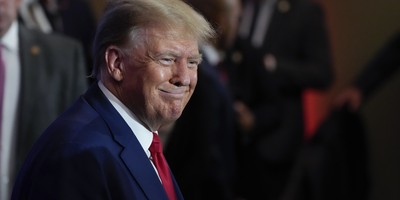WASHINGTON, D.C. -- Rep. Roy Blunt, the House Republican whip, on July 8 introduced a resolution demanding that the Defense Department better enable U.S. military personnel overseas to vote in the November elections. That act was followed by silence. Democrats normally leap on an opportunity to find fault with the Bush Pentagon. But not a single Democrat joined Blunt as a co-sponsor, and an all-Republican proposal cannot pass in the Democratic-controlled House.
Analysis by the federal Election Assistance Commission, rejecting inflated Defense Department voting claims, estimated overseas and absentee military voting for the 2006 midterm elections at a disgracefully low 5.5 percent. The quality of voting statistics is so poor that there is no way to tell how many of the slightly over 330,000 votes actually were sent in by the absentee military voters and their dependents and how many by civilian Americans living abroad -- 6 million all total.
Nobody who has studied the question objectively sees any improvement since 2006, and that is a scandal. Retired U.S. Marine Corps Capt. Charles Henry wrote in the July issue of the U.S. Naval Institute Proceedings: "While virtually everyone involved seems to agree that military people deserve at least equal opportunity when it comes to having their votes counted, indications are that in November 2008, many thousands of service members who try to vote will do so in vain."
Henry, now an independent broadcast journalist, has personal experience with this enduring scandal. While serving as a Marine at sea off Iran, he received his 1980 presidential ballot too late to count. President Harry Truman said of troops fighting in Korea, "The least we at home can do is to make sure that they are able to enjoy the rights they are being asked to fight to preserve." But the U.S. military that has so perfected the art of war over the past half-century is at a loss to enable soldiers to vote.
Recommended
A combat officer has enough to do without handling the votes of troopers fighting in Iraq and Afghanistan. A Defense Department Inspector General's report in March last year recommended "appointment of civilian personnel" as "voting assistance officers." The Pentagon brass rejected the idea.
I reported four years ago that the problems of 2000 overseas military voting had not been corrected for the 2004 presidential election. At that time, Under Secretary of Defense David Chu was put in charge of the problem. During massive turnover at the Pentagon, Chu remains in place -- best known among critics of the military vote problem for his chronic failure to return telephone calls.
Congressional attention to the problem has been scattered and limited mostly to Republicans such as Sen. John Cornyn, who earlier this year decried "a lack of will" at the Pentagon to solve the voting problem. Democratic interest about tackling the problem might be tempered by apprehension that soldiers will cast too many Republican votes.
Nevertheless, at least one prominent Democrat -- House Majority Leader Steny Hoyer -- described himself to me as eager to deal with this problem. (Hoyer's home state of Maryland is one of the worst offenders, with ballots of only 4.1 percent of overseas voters counted in 2006.) Hoyer and Blunt, who have become friendly adversaries in a bitterly partisan Congress, conferred several weeks ago and agreed in principle on co-sponsoring a resolution aimed at getting the Defense Department moving.
Hoyer wanted the resolution to cover expatriate Americans as well as the military, and Blunt did not object. They turned the issue over to their staffers and went about the business of major legislation. Blunt had instructed his staff to seek agreement with Democrats but, if not, to introduce a resolution applying only to the military, which was the outcome.
One presidential staffer who is familiar with the situation privately dismisses the Pentagon bureaucrats as "hopeless." In a lame-duck administration counting the days before a troubled eight years finally end, American fighting men and women in Iraq and Afghanistan deprived of their right to vote constitute the least of White House worries.
























Join the conversation as a VIP Member